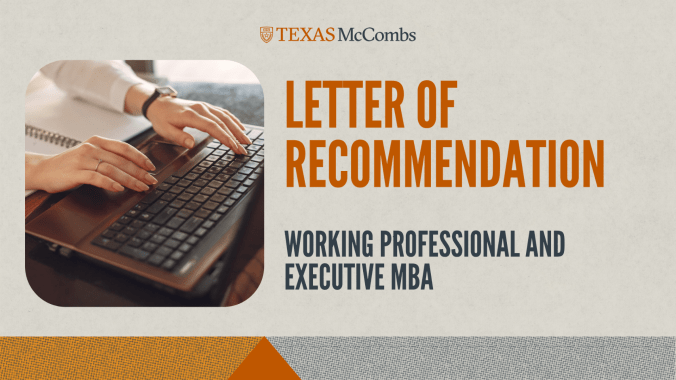Full-Time, Working Professional & Executive MBA Candidates
Calling all aspiring business changemakers! McCombs School of Business at The University of Texas at Austin is thrilled to announce the MBA application for Full-Time, Evening, and Executive programs in Austin, as well as the Weekend MBA at Dallas/Fort Worth and Weekend MBA at Houston, is now open for Fall 2024 entry. With a tradition of excellence in business education and a commitment to fostering innovative leaders, Texas McCombs provides a transformative learning experience that prepares students for success in the ever-evolving global landscape.
Application Components
As part of the Texas McCombs MBA admissions process, all applicants are required to complete all application components. The Admissions Committee aims to holistically assess candidates’ academic, professional, and personal achievements. Our objective is to determine if you are a good fit for Texas McCombs and ensure we are the right school for you and your goals. There are no fixed criteria or weighted portions of the application.
Unless otherwise noted in the respective MBA program sections below, the following application components are required this cycle:
Test Scores: Standardized test scores are a part of the application. All programs accept test scores from GMAT, GMAT Focus, GRE, and Executive Assessment, unless applicants qualify for a waiver. More on the test waiver petition later.
English Proficiency Test: International students must submit an English proficiency test score (TOEFL, IELTS) unless they qualify for a waiver.
Academic Transcripts: Applicants must upload official undergraduate and graduate transcripts (if applicable) from all colleges and universities attended. These transcripts provide insights into the applicant’s academic background and achievements.
Resume: Applicants are asked to provide a detailed resume or CV highlighting their work experience, educational background, and extracurricular activities.
One Professional Recommendation: A letter of recommendation is required, preferably from individuals who can attest to the applicant’s professional capabilities and potential for success in the MBA program.
Video Assessment: Applicants will participate in a video assessment, providing a unique opportunity for them to showcase their communication skills, personality, and passion for business.
Application Cover Letter: The application cover letter is a critical means of learning who you are as an applicant and assessing your communication and writing skills.
Additional Full-Time MBA Application Components
Optional Peer Interview: All MBA applicants may close out their application process and complete a short, optional virtual interview, allowing them to connect with Full-Time MBA students.
Additional Working Professional & Executive MBA Application Components
MBA Admissions Interview: Every Working Professional & Executive MBA candidate will complete an interview with a member of the admissions committee. The interview format is behavioral-based.
Application Deadlines
Texas McCombs offers multiple application deadline rounds to accommodate applicants’ varying schedules and to ensure they have ample time to submit their best applications. Applications must be submitted by 11:59 PM Central Time on the deadline date for each round. All MBA programs enroll annually every August.
For the Full-Time MBA program, the deadlines for the upcoming year are as follows:
Round 1: October 10, 2023
Round 2: January 5, 2024
Round 3: March 26, 2024*
Round 4: May 9, 2024
*Final deadline for international applicants
Applications for the Working Professional MBA program, including the Evening MBA in Austin and Weekend MBA at Dallas/Fort Worth and Weekend MBA at Houston, are accepted in four rounds.
Round 1: October 10, 2023
Round 2: January 23, 2024
Round 3: March 26, 2024
Round 4: May 28, 2024
Applications for the Executive MBA are accepted in three rounds.
Round 1: October 10, 2023
Round 2: February 13, 2024
Round 3: May 28, 2024
Test Requirements and Waivers
To provide MBA candidates with additional flexibility, applicants have more options than ever before when considering how to complete the standardized test requirement in their application. All applicants are required to submit a GMAT, GMAT Focus, GRE, or Executive Assessment (EA) score. We will waive the testing requirement if:
- Expired (taken 5+ years ago) GMAT, GRE, or EA score is submitted
- General Test Waiver (merit-based) is approved
Standardized exams like the GRE, GMAT, GMAT Focus, and EA help us to evaluate a candidate’s academic preparedness for the rigor of business school and is also one metric used to compare candidates within a large pool of applicants. However, there are some scenarios where a candidate’s application might shine without the standardized test. Learn more about the criteria required to apply for a general test waiver.
Once the GMAT Focus is launched in late fall, Texas McCombs will accept both the current GMAT test type and the new GMAT Focus test type.
Full-Time MBA
The Full-Time MBA program at Texas McCombs is designed for individuals seeking an immersive and transformative business education experience. With a rigorous curriculum, a unique and talented cohort, and unparalleled networking opportunities, the Full-Time MBA program prepares graduates to excel in their careers and make a significant impact in the business world.
Looking for more detail on the Full-Time MBA Application Components? Click here to access a curated list of blogs on this topic.
Working Professional MBA
The Working Professional MBA program is tailored for ambitious professionals who wish to pursue an MBA while continuing to work. Offered in the evenings in Austin or on alternating weekends in Dallas/Fort Worth or Houston, this program allows students to balance their professional and academic commitments effectively. With a focus on flexibility and practical learning, the Working Professional MBA program empowers students to enhance their leadership skills and advance their careers without interrupting their work schedules.
Looking for more detail on the Working Professional & Executive MBA Application Components? Click here to access a curated list of blogs on this topic.
Executive MBA
The Executive MBA program is designed for seasoned professionals with extensive leadership experience. Through a blend of dynamic classroom sessions and experiential learning opportunities, the program equips executives with the knowledge and insights necessary to address complex business challenges confidently. The Executive MBA program also fosters a strong sense of camaraderie among participants, creating a valuable network of high-impact business leaders.
Looking for more detail on the Working Professional & Executive MBA Application Components? Click here to access a curated list of blogs on this topic.
Our Commitment to You
Our goal is for these application components to exemplify our commitment to a human-centered, future-focused approach. We deeply value each candidate’s individual journey and recognize the potential they bring to our program.
Ready to join the ranks of successful Texas McCombs MBA alumni and take the next step in your career? Join us as we shape a class of talented individuals with different perspectives, pioneering a path toward a brighter and more impactful future in business education. The application is now open, and we look forward to reviewing your submission.
If you have any questions during the application process, we’re here to help. Please visit our website for details on applying to each program and follow us on Instagram for an inside look into the Texas McCombs MBA.
Good luck and Hook ’em!
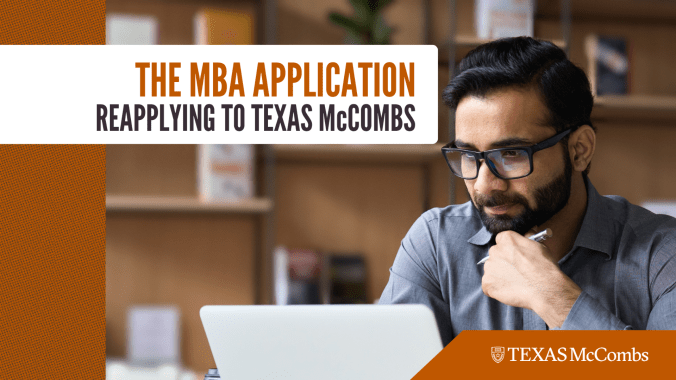

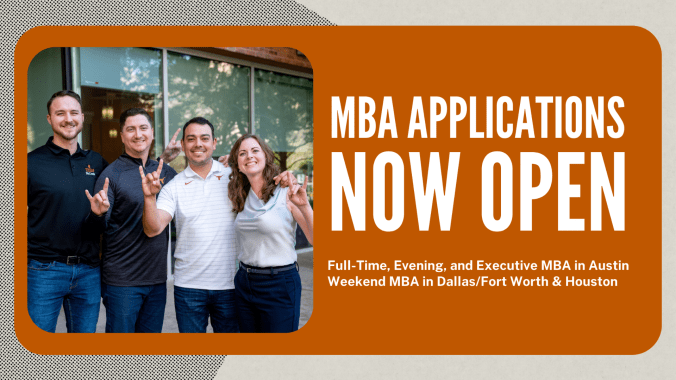
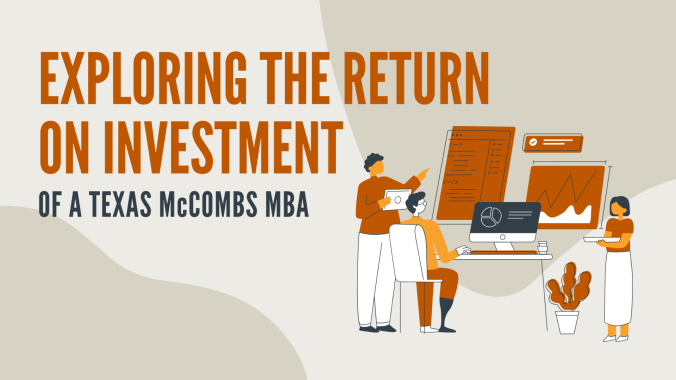
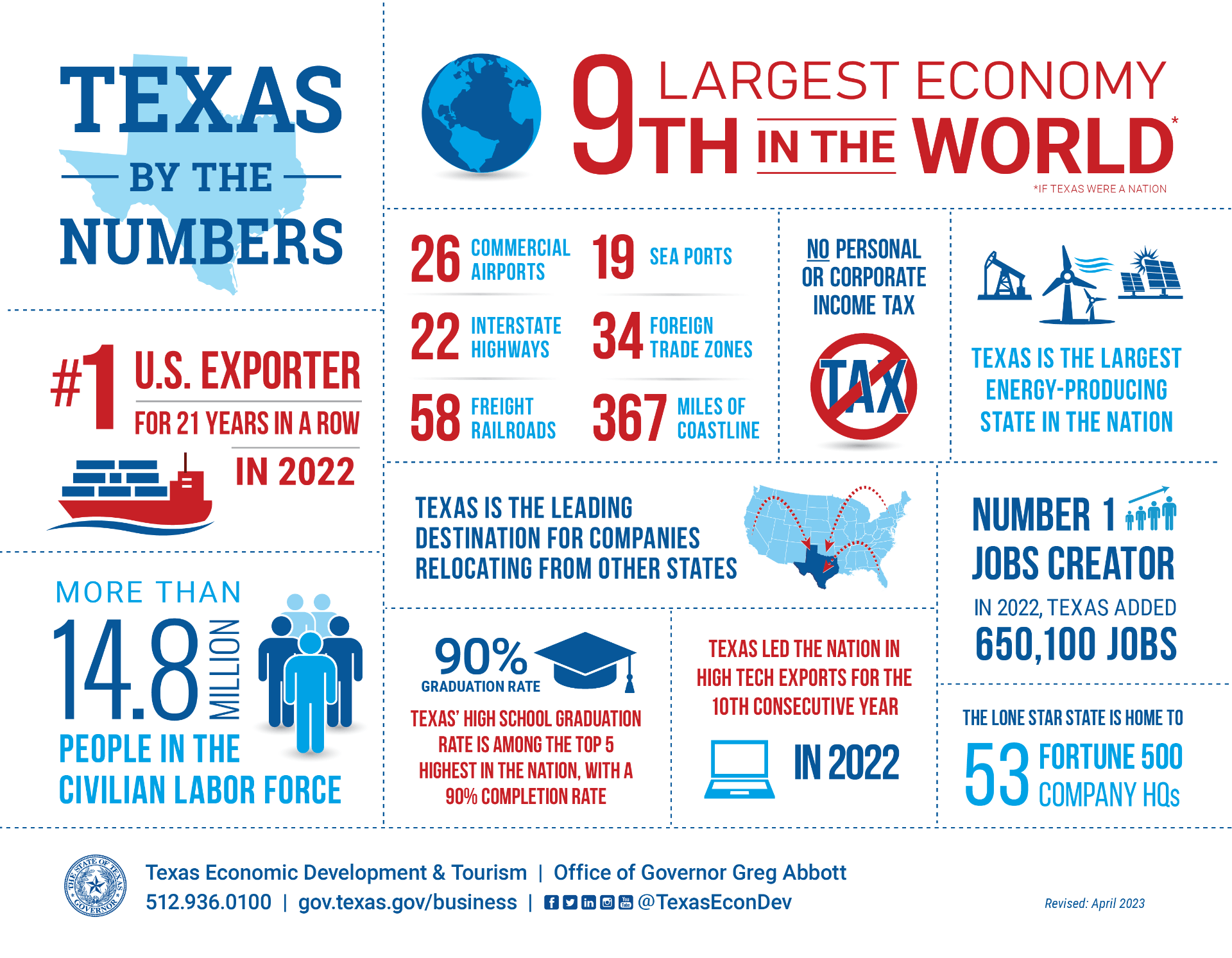
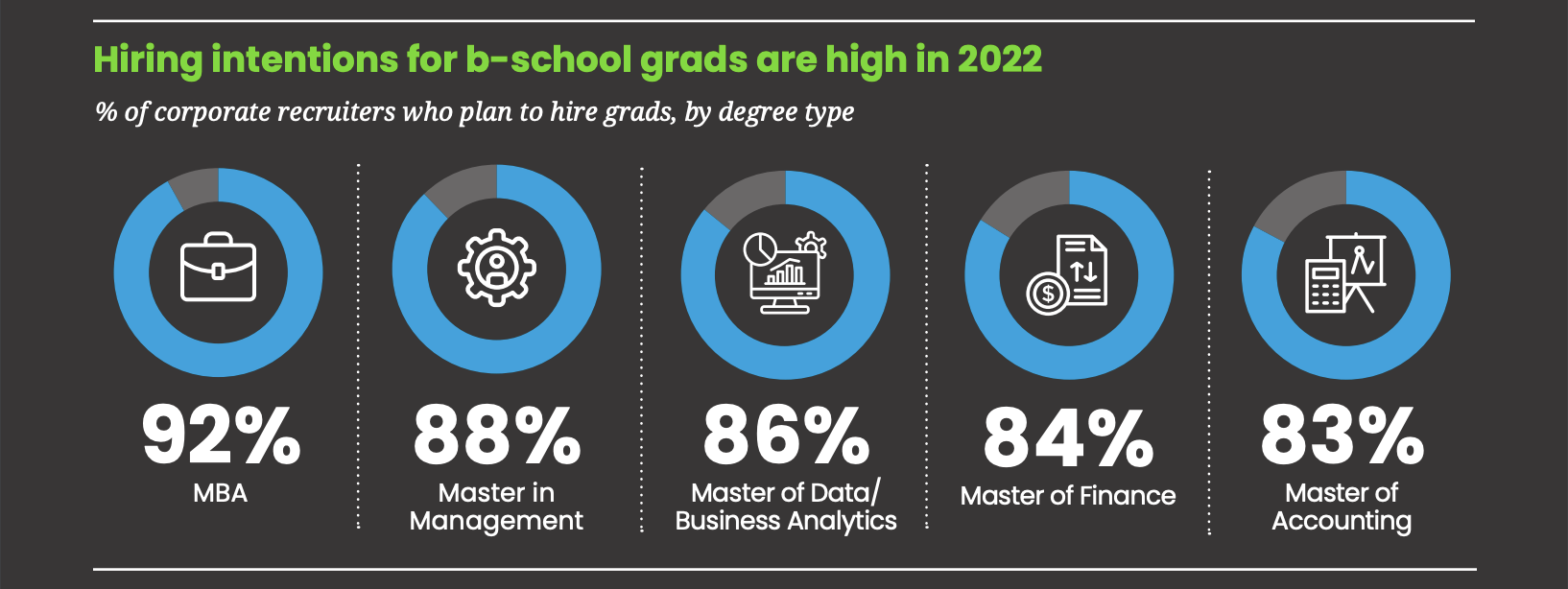
 After your McCombs MBA investment has paid for itself, you’ll have a lifetime to reap the rewards. If you are in your 20s or 30s, with an expected retirement age of 65, then you could have 30 or 40 more years ahead of you in your career. Wouldn’t it be nice to make the most of your incoming-earning years? The earlier you start, the more time you have to benefit from your increased post-MBA salary.
After your McCombs MBA investment has paid for itself, you’ll have a lifetime to reap the rewards. If you are in your 20s or 30s, with an expected retirement age of 65, then you could have 30 or 40 more years ahead of you in your career. Wouldn’t it be nice to make the most of your incoming-earning years? The earlier you start, the more time you have to benefit from your increased post-MBA salary.

